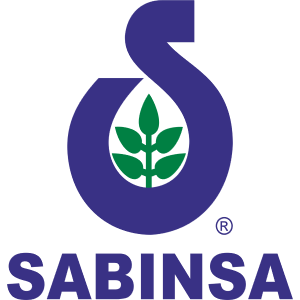Committed to research and innovation, Sabinsa Corporation, East Windsor, NJ, has brought more than 100 standardized botanical extracts to market over its 25-year history, firmly rooting Ayurvedic tradition in the 21st century.
Looking to educate marketers and manufacturers about the science behind Sabinsa’s ingredients, the company’s scientific seminar, Sabinsa On Wheels, made three stops in 2013—Utah and Los Angeles in September and New Jersey in October. The program itself is 15-years-old, and previous seminars have been conducted worldwide, including in Australia, Europe, Japan and South Korea.
“We have been quite pleased by the response to the robust body of science we have presented,” said Muhammed Majeed, Ph.D., Sabinsa’s founder. “The growing commitment to the science behind supplement ingredients on the part of formulators and marketers of finished products does the industry credit.”
Supported by 1,000 employees, 100 scientists, 87 patents, 10 international offices and six manufacturing facilities, the company has positioned itself as a trusted manufacturer, supplier and marketer of herbal extracts, cosmeceuticals, minerals, dietary supplements and specialty fine chemicals for the nutritional, cosmetic, pharmaceutical and food industries.
“As our slogan says: ‘Innovation is Our Answer,’” said Jayasankar Nair, CEO, who went on to explain the symbolism of the Sabinsa Wheel itself. According to Founder Dr. Majeed, the wheel demonstrates dynamism. Four of the eight spokes represent the elements of nature (earth, fire, air and water), which sustain life; the other four spokes symbolize the seasons (spring, summer, fall and winter). So in essence, the elements of nature, combined together, can sustain well-being throughout life.
Sabinsa invests about $6 million each year in research for existing and pipeline products, according to Shaheen Majeed, marketing director. And the company has privately funded several clinical studies in conjunction with prestigious institutions in support of its products, which include, among a variety of phytoextracts, ForsLean (Coleus forskohlii), GarCitrin (Garcinia cambogia) and LeanGard—which combines ForsLean and GarCitrin with the company’s bioavailability enhancer BioPerine® black pepper extract—for weight management and sports nutrition.
Nagabhushanam Kalyanam, Ph.D. president of R&D, Sabinsa, noted that Forskohlii belongs to the mint family of plants, and the active compound forskolin (10%) can only be found in the plant’s roots. Forskolin activates an enzyme called adenylate cyclase, the main enzyme involved in the production of a significant metabolic molecule called adenosine monophosphate (AMP), which is responsible for enhancing essential lean mass-building hormones at the expense of non-essential body fat.
GarCitrin, meanwhile, is a standardized extract obtained from the dried fruit rinds of Garcinia cambogia and is standardized for a minimum 50% hydroxycitric acid (HCA) and a minimum 5% garcinol.
Sabinsa offers seven products affirmed Generally Recognized As Safe (GRAS): BioPerine®; Citrin K® (Garcinia cambogia); CococinTM coconut water solids; Curcumin C3 Complex®, a standardized extract of turmeric (Curcuma longa); LactoSpore® probiotic (Bacillus coagulans), Saberry® (amla, or Indian gooseberry); and SeleniumSeLECT® (L-selenomethionine). All products intended for human consumption are certified Kosher and Halal, according to the company.
Recently, the Federation of Indian Chambers of Commerce and Industry (FICCI) honored Sami Labs Limited, the manufacturing and R&D arm of Sabinsa Corporation, with the prestigious 2013 “Product Innovator of the Year” award for the proprietary product OlePent, a triterpene-pentapeptide complex with unique cosmeceutical properties. Sabinsa plans to launch OlePent in the near future under exclusive license.
OlePent’s inventive merit was acknowledged by the U.S. Patent Office through U.S. Patent No. 8383594 titled “Peptides modified with triterpenoids and small organic molecules: synthesis and use in cosmeceuticals.” The Karnataka State Innovation Council awarded the inventors of OlePent a merit certificate for filing a corresponding Indian Patent application.
During the October Sabinsa On Wheels event in New Jersey, Sarang Bani, Ph.D. vice president (R&D) and head, biological sciences at Sami Labs, noted that innovation is a strongly held principle for the company, as “science does not stop at a single point; it keeps changing. Every five years we discover a radical change in science.” Consequently, it’s important to continue investing in research. Anurag Pande, Ph.D. vice president, scientific affairs, Sabinsa, added, “analytical research and development is the backbone of a robust scientific program.”
Guest speaker Doug Kalman, Ph.D. RD, FACN, CCRC, director, Endocrinology & Nutrition Division, Applied Clinical Trials, Miami Research Associates, Miami, FL, praised Sabinsa for its diligence in bringing standardized Ayurvedic extracts into the mainstream market.
For example, Dr. Kalman discussed results from several clinical trials that demonstrated the benefits of curcumin for joint health, saying evidence indicated subjects who took 200 mg of curcumin per day experienced a significant improvement in pain evaluations and physical activity, per the study testing parameters. In another evaluation that compared curcumin to ibuprofen, Dr. Kalman noted that curcumin “appears to be just as effective, but has a better safety profile,” which is noteworthy “especially in light of liver warnings on naproxen and Advil.”
Marc Ullman, partner at Ullman Shapiro & Ullman LLP, presented about Good Manufacturing Practices (GMP), saying it is critical that companies work closely with trusted suppliers in order to ensure quality. He emphasized the importance of conducting dietary ingredient testing, qualifying vendors and maintaining written specifications for identity, purity, strength and composition of ingredients, as well as master manufacturing records and Hazard Analysis and Critical Control Points (HACCP) plans.
With an aging population facing rising healthcare costs, companies and consumers are realizing the true value of preventive medicine. Dietary ingredients and natural health products rooted in science will continue to drive the global market forward.









